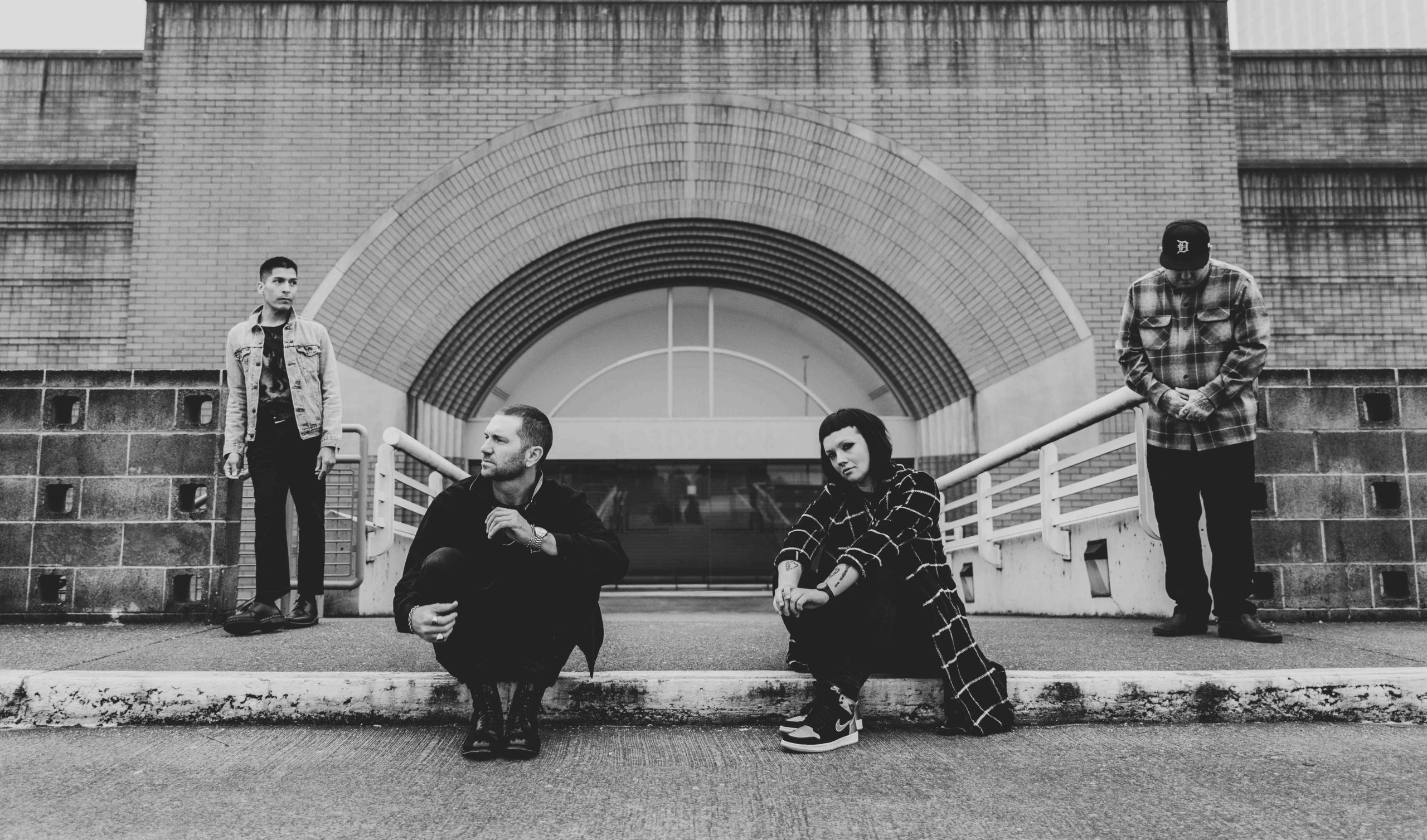If you CTRL+F search “Portland” on the Wikipedia pages for Post-punk, New wave music, or Gothic rock, you won’t get any results. The Oregon city (or its Maine counterpart, for that matter) has never played much of a role in the heydays of any of these movements, instead notably housing indie folk acts like The Decemberists and Blitzen Trapper since the turn of the century.
The latest LP from Soft Kill not only attests to something of a once-thriving post-punk underground in the city, but also paints a picture of a desolate city inviting of the pained lyrics and icy instrumentation characteristic of the genre. The gloomy sheen of Dead Kids R.I.P. City doesn’t just feel like it’s tapping a popular moment in ’80s rock as a temporary costume to wear, but rather precedes vocalist Tobias Graves’ honest conversations about addiction, trauma, and death beneath its heavy, echoing guitars and backing synths.
From the surprisingly upbeat early single “Pretty Face” to the elongated dirge “Oil Burner,” the record treads plenty of ground across its fifty-minute run time while conforming to a theme of “songs about people we miss so much buried under suffering that we still see everyday on our way through this troubled city,” as Graves explains it. To offer a bit more context on the project and the conditions it was forged in (and to give us Soft Kills official reeds policy), Graves answered a few of our questions in a brief Q&A, which you can read beneath an early stream of the record.
Portland is shaped by this entire era of people, places, and things that I don’t think are represented in people’s modern perception of what living here must be like. It was—especially in the past—a place you could get by living on the edge of society, pay your way through crime, functioning as an addict with a community of like-minded psychopaths. The big work in progress here as a city has been how we deal with these issues and helping people transition back into real life through recovery. There’s always been a lot of shelters and soup kitchens, treatment centers and nonprofits that work with people directly to survive. Because of that, a lot of people, myself included, ended up out here on our own personal downward spirals and crossed paths, and those experiences together shaped these songs lyrically.
What’s Portland’s post-punk scene like? Is it changing along with the city?
It’s gone in waves. It was very embedded in the spikey-haired punk rock world for a while with bands like Bellicose Minds, Arctic Flowers, etc. This band Anne was amazing. The Prids moved here a long time ago and fit into this world, too. There’s a bunch of current bands, but I’m pretty out of touch with what’s happening here. Admittedly since having a kid, my show-going has been limited, and when we play locally it’s almost exclusively with bands from out of town.
Having released music on Profound Lore and toured/released a split with Portrayal of Guilt, what’s been attractive to you about associating with heavier music circles?
It’s boring to just associate with the obvious. It’s also harder to grow if you just play within the echo chamber. I see bands of this sound and style get labeled “guilty pleasures” or “if you like Joy Division” instead of just a project people embrace. We always wanted to do something different, and it feels like staying in our own bubble keeps us pushing in our direction instead of being influenced by like-minded bands.
In addition to Tamaryn and Choir Boy, what other artists—alive or dead—do you think would have been a good fit on this album?
Maybe a sax solo from Duncan Kilburn of The Psychedelic Furs, but we have a strict “no reeds” policy in Soft Kill.









